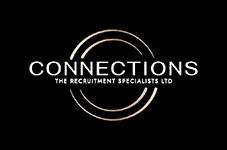An interview can be going excellently right up until you get asked, ‘what are your salary expectations?’ Answering this can be tricky as you don’t want to lose out on a job by seeming too greedy, but you also don’t want to be devalued and get stuck in a job that won’t support you financially. We’re here to help you navigate this tricky question and find a job with the right balance for you and your bank account.
Know what they’re asking
Firstly, the question might not always be worded exactly as ‘what are your salary expectations?’ so you should prepare for a few scenarios. You may be asked ‘what are you currently earning?’ or ‘what are you looking to make?’ Each of these is designed to find out different things, and there are different ways of answering them.
Current salary:
If you’re asked about your current salary, you can answer truthfully and they may make you an offer that’s slightly higher which may seem good but may actually be the lower end of what they would have been willing to pay, or you can respectfully decline to answer. If you choose the latter you can phrase it along the lines of ‘I would ideally prefer to discuss my responsibilities and the value that I could add to the company and then discuss a salary.’
Salary expectations:
When you’re asked ‘what are you looking to make?’ there are again a couple of options. You can give a similar answer to the current salary question and say ‘My expectations are flexible, but I’m more interested in finding a position that is a good match for my skills and qualifications and I would be very happy to discuss a fair salary for the role later.’ Or if you’re really pushed for an answer, check out our next tip below.
Research, research, research
If the interviewer doesn’t accept a general answer and they really want a ballpark figure, then you need to have done your research. Search for the job title you’re applying for and see what different companies are offering for that role or roles with similar experience and qualifications to what you have. You can also look for similar roles in nearby locations to show what competitors of the company you are applying to are offering.
This will give you a good idea of the typical salary range and you can feel comfortable telling your interviewer a fair salary that won’t sell yourself short. Be sure to reiterate that you have done your homework when you answer. Here are a few examples of the type of response you can give:
- ‘I feel that my experience and qualifications would benefit the company and this role, and my research has shown that based on these a salary between ——- and —— would be typical.’
- ‘I believe that my salary expectations of —— to —– are in line with my experience, qualifications and skills and what I could bring to this role.’
- ‘I would like to know more about the key responsibilities and required criteria for the role which I would love to talk to you about, however I am aware that similar positions pay in the region of —- to —-, though this would be something I would be happy to discuss.’
Extras, extras, read all about them
If you are offered an amount that doesn’t quite meet your expectations but would still be sufficient, it’s not always the end. You should keep in mind that some companies may have a limit on what they can offer in salary, but this may be boosted by extra perks. Things like health or dental benefits, bonuses, extensive holiday days, flexi-work schemes or just little perks like an early finish or Friday breakfast can greatly improve a job’s appeal and make it an enjoyable place to work.
If you don’t get a job because you think the company wanted someone with the cheapest rate possible, remember you are worth a fair salary and the right one will come along. Our team can help you speed up the process, just check out the great jobs we have available here.

First off I would like to say terrific blog! I had a quick question which I’d like to ask if you don’t mind.
I was curious to find out how you center yourself
and clear your mind prior to writing. I’ve had a
tough time clearing my mind in getting my ideas out.
I truly do enjoy writing however it just seems like the first 10 to 15 minutes are usually lost just trying to figure out how to begin. Any ideas or tips?
Many thanks!
Thank you for the compliment! Sounds like you’ve got the dreaded writers block. Before we write our articles, we like to really research an interesting topic without rushing and then take our time writing them before taking a break and looking at it again with a fresh perspective. You don’t have to write from start to end, if you know what you’ll say to close your writing, write that down and work back from there!
Awesome post.
Thank you!